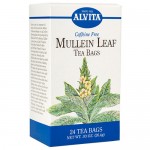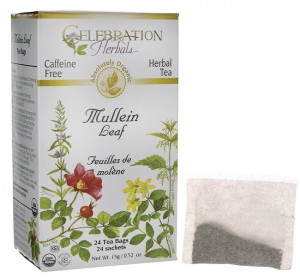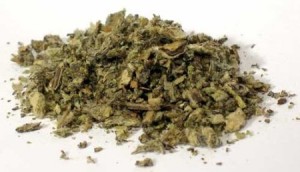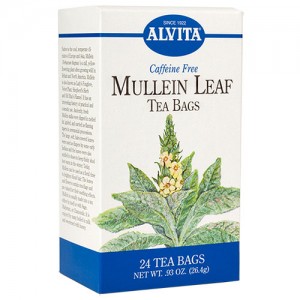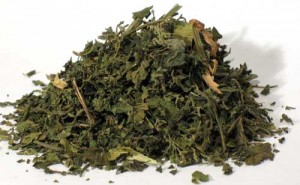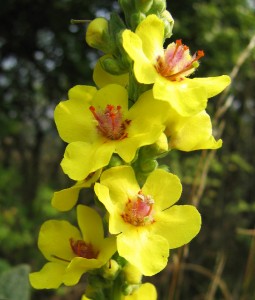Mullein Tea
Mullein tea is a popular herbal infusion prepared from the leaves and flowers of mullein (Verbascum thaspus). Presence of riboflavin (Vitamin B2), pantothenic acid (Vitamin B5), folate (Vitamin B12), Vitamin D, magnesium, choline, saponins, mucilage as well as other substances makes it beneficial in curing a lot of ailments.
History and Origin
Native Americans used the leaves, flowers as well as roots of mullein to make an infusion to treat respiratory ailments. The Creek Indians drank a decoction of mullein roots to attain relief from coughing, whereas native tribes treated asthma by smoking its roots and the dried leaves.
Among the various folk names given to mullein, it was called “candlewick plant” because the dried stems and leaves were used to make lamp wicks. Because of its tall stalks it is referred to as “Aaron’s rod”, “Jupiter’s staff” and “Jacob’s staff”. On the other hand, its soft leaves are given unusual names such as “flannel leaf” and “bunny’s ears”.
This plant is a native of Europe, Africa as well as Western and Central Asia, also being introduced in Australia and the Americas.
Mullein tea health benefits
Good for lungs
Its saponin content makes it a strong expectorant, eliminating excess mucus from your lungs. Having demulcent and emollient properties, this leaf tea helps in protecting and soothing the membranes. Therefore, it is beneficial in treating bronchitis, chest congestion, pneumonia, asthma, extensive coughing, flu, emphysema and laryngitis. It also acts as an effective natural remedy to treat Chronic Obstructive Pulmonary Disease (COPD). You can try gargling this tea when cooled to relieve sore throat.
Helpful for sleep
Being a mild sedative, it is useful for insomnia patients.
Relieves pains and spasms
Its anti-spasmodic and pain relieving properties help in providing respite from stomach pain and cramps, also reducing spasms related to allergies and hay fever.
A useful diuretic
Mullein leaf tea is a natural diuretic, helping in relieving inflammation of the urinary tract as well as increasing the output of urine.
Better thyroid gland function
Owing to its anti-inflammatory properties, it helps in minimizing inflammation of the thyroid gland, thus being beneficial for treating goiter. However, people taking medications for thyroid should consult their doctor before drinking this tea.
Help in easing headache
Because of its pain relieving ability, tea or tincture made from mullein flowers aids in relieving migraine and other headaches.
Anti-bacterial properties
The antibacterial and antimicrobial properties of mullein tea helps in treating tuberculosis as it hinders the action of mycobacterium, the bacteria responsible for causing this disease.
Studies have stated that patients suffering from tuberculosis were cured of their symptoms on drinking mullein milk tea twice a day. In fact, there was a reduction in their coughing and diarrhea and an increase in weight. However, more research is required to confirm this benefit.
Relieves digestive disorders
The detoxifying properties in this caffeine-free tea help in balancing bowel movements, relieving constipation as well as diarrhea.
Other benefits of mullein tea
Applied to treat skin irritations
Having antibacterial, anti-inflammatory, antiviral and astringent properties, a poultice of mullein tea when cooled, helps in treating sores and wounds as well as keeping them clean and uninfected. Acting as a calming agent, it gives a soothing feeling when applied on burns, rashes and chilblains (itchy, painful lumps). Topical application of its compress is also said to cure herpes and cold sores.
For hemorrhoids
The presence of mucilage, a slippery substance, helps in easing the symptoms of hemorrhoids when applied as a compress.
Good for hair
Rinsing your hair with mullein tea after washing it will give shine to your hair as well as help in keeping your scalp healthy.
Useful for ear infections
Mullein flower tea mixed with 1 tbsp of olive oil helps in getting rid of ear infection. Moreover, a warm compress of this tea can reduce earache, also preventing infections.
How to make mullein leaf tea
Apart from the leaves its flowers can also be used in the tea for a sweet taste. However, make sure that you do not use the seeds as they have toxic properties. Given below is the method to make a cup of this herbal tea:
- Take one to two teaspoons of dried leaves and flowers.
- Boil about a cup of water and put the leaves and flowers in it.
- Cover the boiling pan and give it a steeping time of about ten to fifteen minutes.
- Use a fine weaving cloth or even a coffee filter to strain the infusion well so that the tiny hairs are removed as they may cause throat irritation or allergies.
- You may add milk or honey if you desire.
Safety information: Are there any side effects
Overconsumption may result in stomach problems. If you develop any allergic reactions like rashes, a problem in breathing or chest pain then bring it to the notice of your doctor at the earliest.
Use during pregnancy
Pregnant women, as well as breastfeeding mothers, should consult their doctor prior to consuming it.
For children
This leaf tea is said to treat whooping cough, cold, and croup in children. Consult your doctor before introducing it to your kid’s diet.
Where to buy
Mullein tea can be purchased online or in stores selling herbal teas.
Article was last reviewed on 23rd July 2021
Related Articles
Leave a Reply
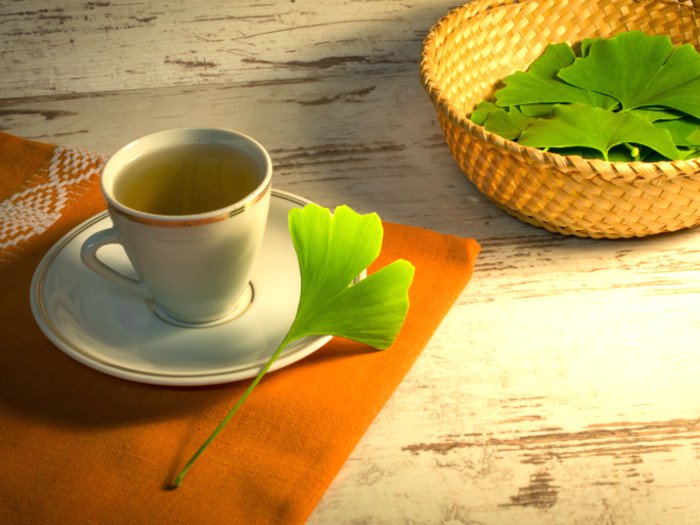
Ginkgo Biloba Tea
The Ginkgo Biloba tea is an herbal infusion obtained from the extract of the dried leaves
Read more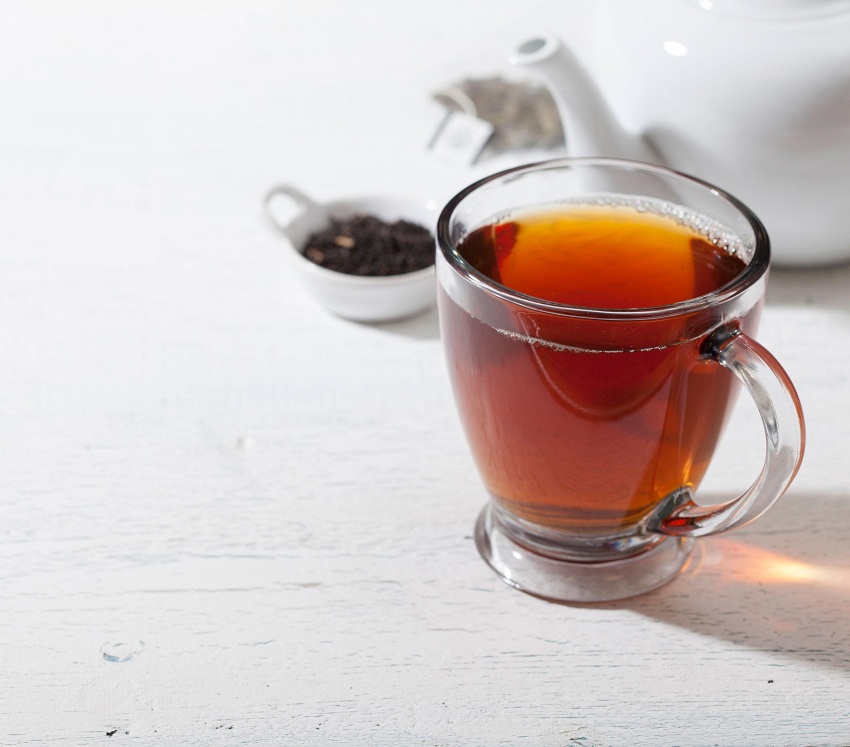
Black Tea
Black tea, belonging to the same group as the green, white and oolong teas is the most oxi
Read more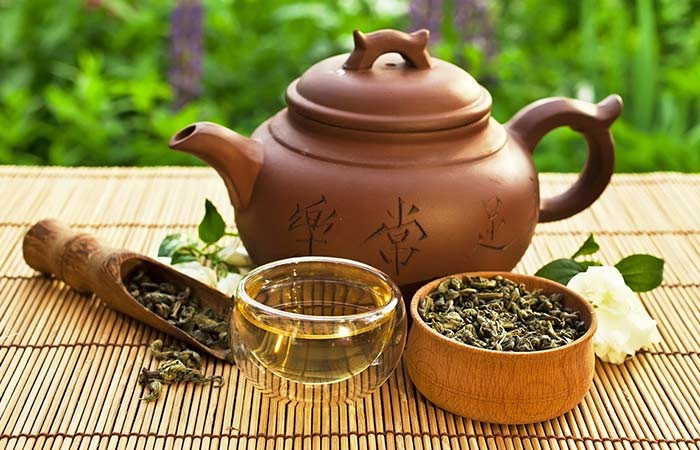
Oolong Tea
What is oolong tea Oolong, a traditional beverage of China, is prepared from the buds, st
Read more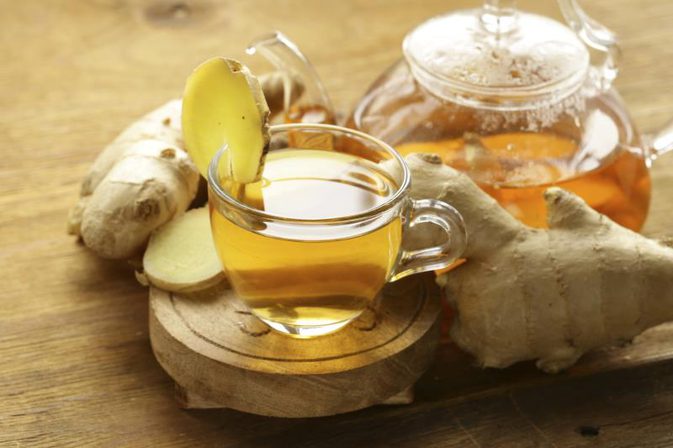
Ginger Tea
Ginger tea, prepared from the roots of ginger, is a popular herbal beverage of Asia. Becau
Read more
